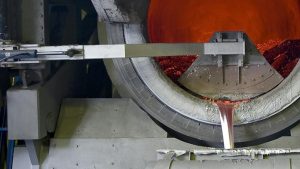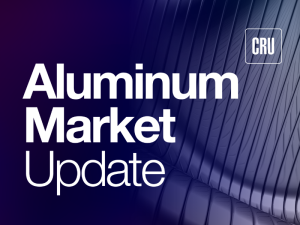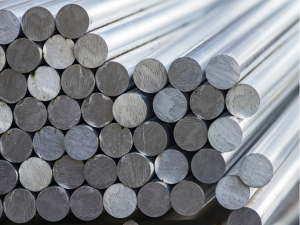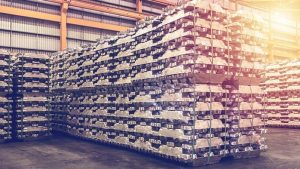
Century's Hawesville smelter sale in the context of US primary aluminum
Former smelter sites have become increasingly attractive to data center developers competing for electricity to support AI.

Former smelter sites have become increasingly attractive to data center developers competing for electricity to support AI.

There is no evidence that unofficial talks are taking place to secure tariff reductions on Canadian aluminum or steel. One of the biggest challenges is simply understanding what the US actually wants from Canada.

Rising global capital and power costs, driven by China's production cap and higher-cost expansion in Indonesia, are resetting aluminum's incentive price, making higher LME levels necessary to unlock new primary capacity outside China.

As more contracts are up for negotiation in 2026, labor is poised play a larger role in operational planning at a time when trade issues and high prices also are in play.

It remains unclear how long the repairs will take, as the second fire in November damaged the hot mill’s finishing mill.

We will examine the wisdom of hedging from the perspective of both the LME and Midwest premium, and whether you are approaching the market as a buyer or a seller.

A cluster of Airbus announcements reveals how quickly the OEM is tightening and rebalancing its US supply chain.

There was a palpable sense of optimism among folks at the HARDI conference about demand from data centers. In other words, around the physical infrastructure – which also includes energy transmission - needed to feed the AI boom. The big question: Could demand from data and AI be far stronger than the market yet realizes?

In this exclusive interview, AMU talks with incoming CEO Ingrid Joerg about her experience and her vision for Paris-based aluminum company Constellium SE.

You may have heard about traders “canceling” metal on the London Metal Exchange and shipping it out. Here's a guide to understand that process.

Contract talks for U.S. value-added aluminum products are reaching a critical stage, with billet, primary foundry alloys, and wire rod upcharges diverging as buyers and producers race to finalized 2026 pricing.

AMU's latest survey of aluminum market participants shows widening gaps in lead times, with extrusions lengthening dramatically.

President Trump’s decision to suspend trade negotiations with Canada has crushed short-term expectations of any relief for Canadian producers or the US Midwest P1020 premium.

Ford executives said the automaker expects aluminum supplier Novelis to restart its fire-damaged Oswego, NY hot mill by late November or early December.

As Aluminum Dynamics Inc. (ADI) continues to ramp up production at its Mississippi mill, Steel Dynamics Inc.'s chief executive said there is more opportunity ahead.

The Consumer Federation of America estimates rising total auto debt at a staggering $1.66 trillion, along with increasing repossessions and a sharp increase in delinquencies.

More liberal access to the Northwest Passage could play into trade negotiations between Canada and the United States.

Meanwhile, the nation’s largest rail union said they supported the tie-up between Union Pacific and Norfolk Southern once Union Pacific agreed to secure union jobs.

Rising Midwest and European premiums are giving Canadian aluminum producers a rare boost, restoring pricing power just ahead of key 2026 negotiations.

Let me begin by extending sincere congratulations to the EGA/Spectro Alloys team on achieving their first metal casting at the Rosemount (MN) secondary billet casthouse.

On Thursday, the U.S. and EU agreed to more concrete terms to their handshake deal of last month.

Hardly a day goes by without someone writing about the expected rise in US electricity demand. This demand is largely driven by data center and AI’s appetite for power.

While US construction markets are far from uniform, recent indicators from June and July paint an unusually fragmented picture.

Tariff threats on Brazil aren't just hitting steel products. Aluminum is also feeling the heat.

The commercial vehicle sector is showing signs of fatigue, but you wouldn’t know it at first glance of the latest government figures.

CDC Atlantic already houses 13 die-casting machines (ranging from 900 to 1,600 tons), three on-site furnaces, and shot blasting capabilities.

Prysmian’s groundbreaking for a 650,000-square-foot, medium-voltage cable facility on Encore Wire’s Texas campus marks a big development in the aluminum wire and cable sector.

The moves include reciprocal procurement restrictions, import quotas, and the formation of stakeholder task forces for aluminum industries.

Hashing out duty costs

Some aluminum parts are being replaced by steel. And more manufacturers are salvaging what they can before sending vehicles to recyclers.